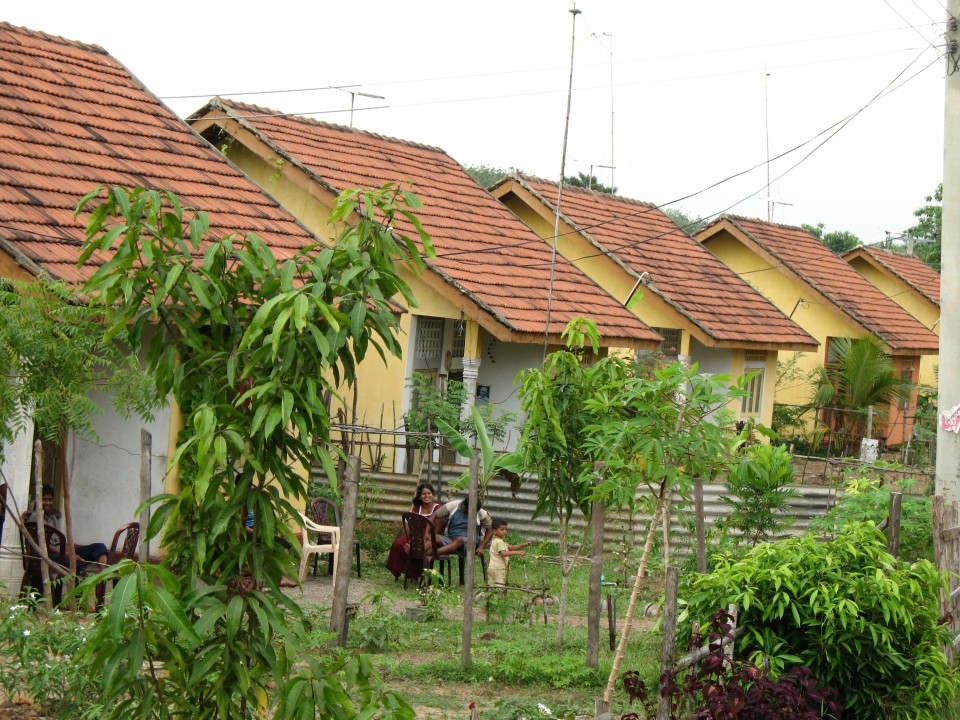
Houses in the Lagoswatte ecovillage, part of the Sarvodaya organization in Sri Lanka. Credit: https://ecovillagebook.org/ecovillages/sarvodaya/
This class made me aware of ecovillages, communities focused on sustainable living. In her article, A Whole New Way of Life: Ecovillages and the Revitalization of Deep Community, Karen Litfin discusses what ecovillages are, how they interact with the rest of the world, and their importance in facing climate change. She mentions these communities are not protest-oriented but rather affirmative.
This idea of affirmative politics is new to me, but I think it is very powerful. In the United States, we take pride in our freedom of speech, and if we don’t like something, we can go protest it. However, particularly in the past two years, as the divisions in our own electorate have become clearer than ever, this oftentimes feels unproductive. We have different groups marching against each other, saying the other side is wrong, but solutions are not always forthcoming.
Ecovillages do not protest, instead they offer an alternative way of living. As Litfin points out, traditional activism has broken down, and ecovillages provide “a radical, holistic, and affirmative rethinking of sustainability” (131). If you dislike a system, you should at least have an alternative in mind. One strength of ecovillages is that they can serve as a proof-of-concept for that alternative; we can see their results and say, “why don’t we do that?”
Ecovillages are clearly important models for sustainable living, but they should also serve as a model for political discourse and change. Perhaps if instead of complaining about problems, we focus on creating solutions, people will see that what we are doing works and adopt the new system. There is plenty of evidence supporting this approach. For example, Elon Musk thought we needed better sustainable transportation, but instead of protesting, or debating with politicians, he created electric cars that are better than gasoline-powered cars.
The more I learn about ecovillages, the more interesting they become. I think they can teach us a lot about being human in the Anthropocene. It will be necessary for us to change the way we live at some point, by definition of “unsustainable.” Ecovillagers are facing Anthropocene issues now; hopefully they can be a teaching resource to the rest of humanity moving forward.
